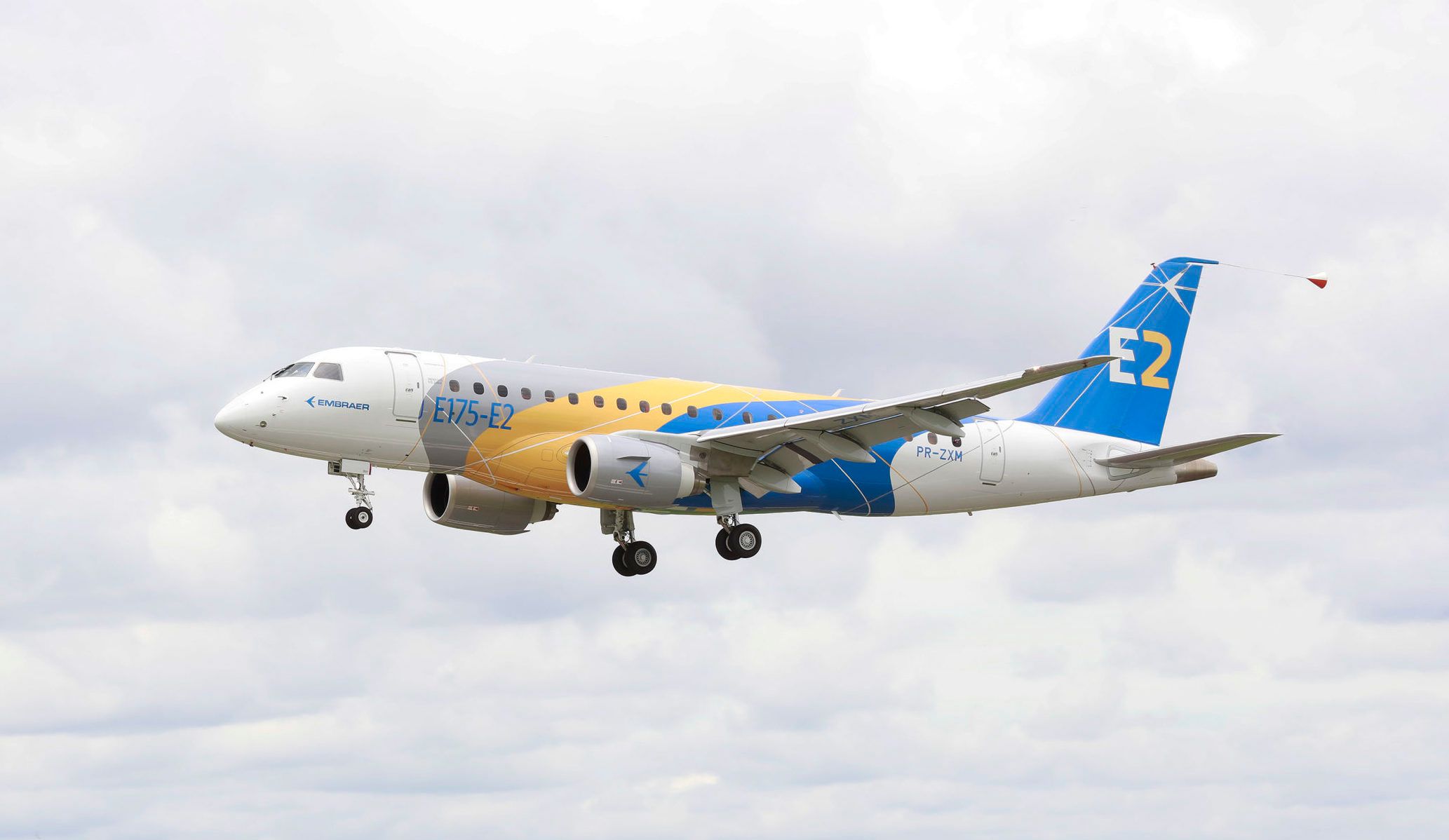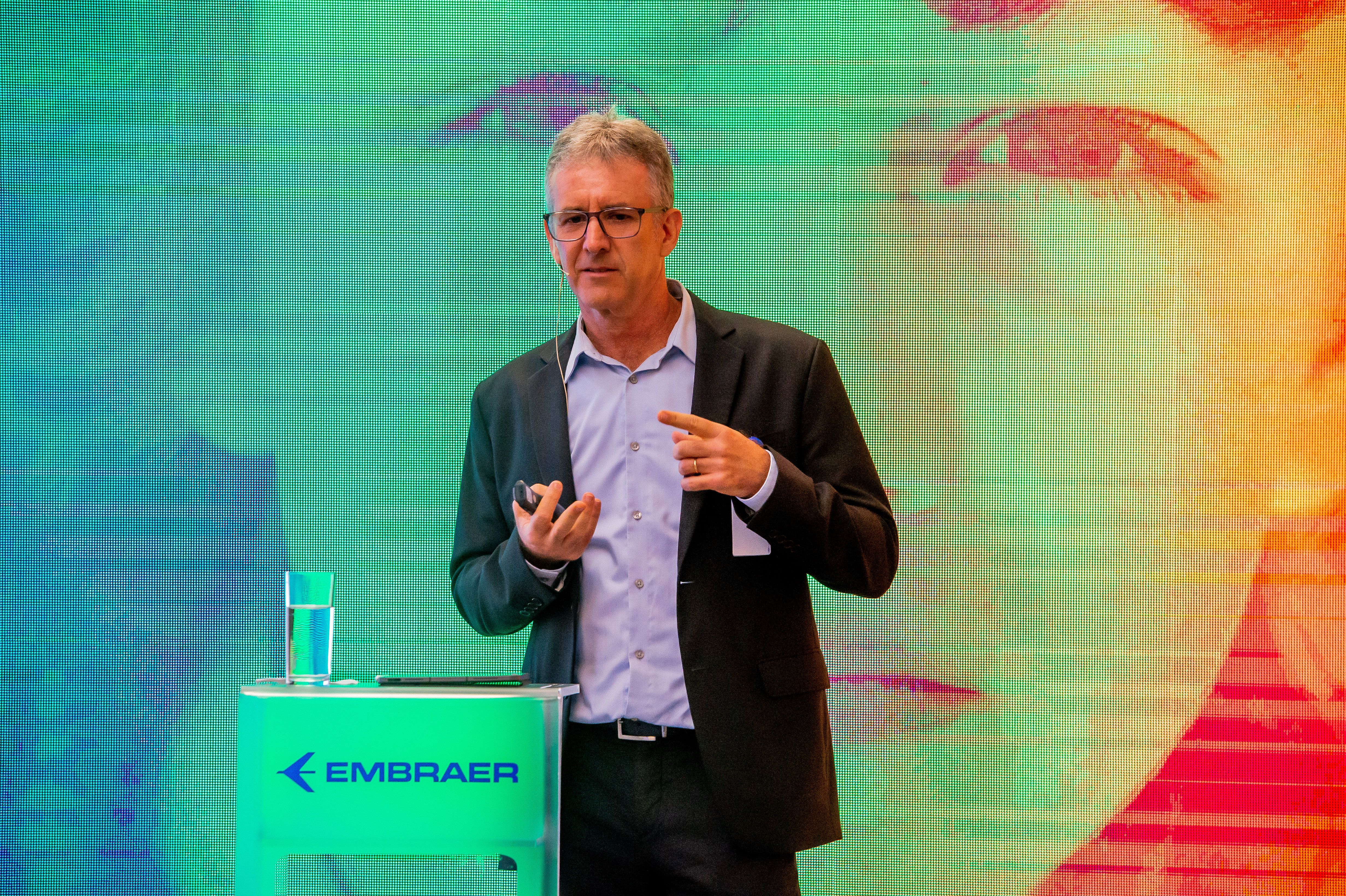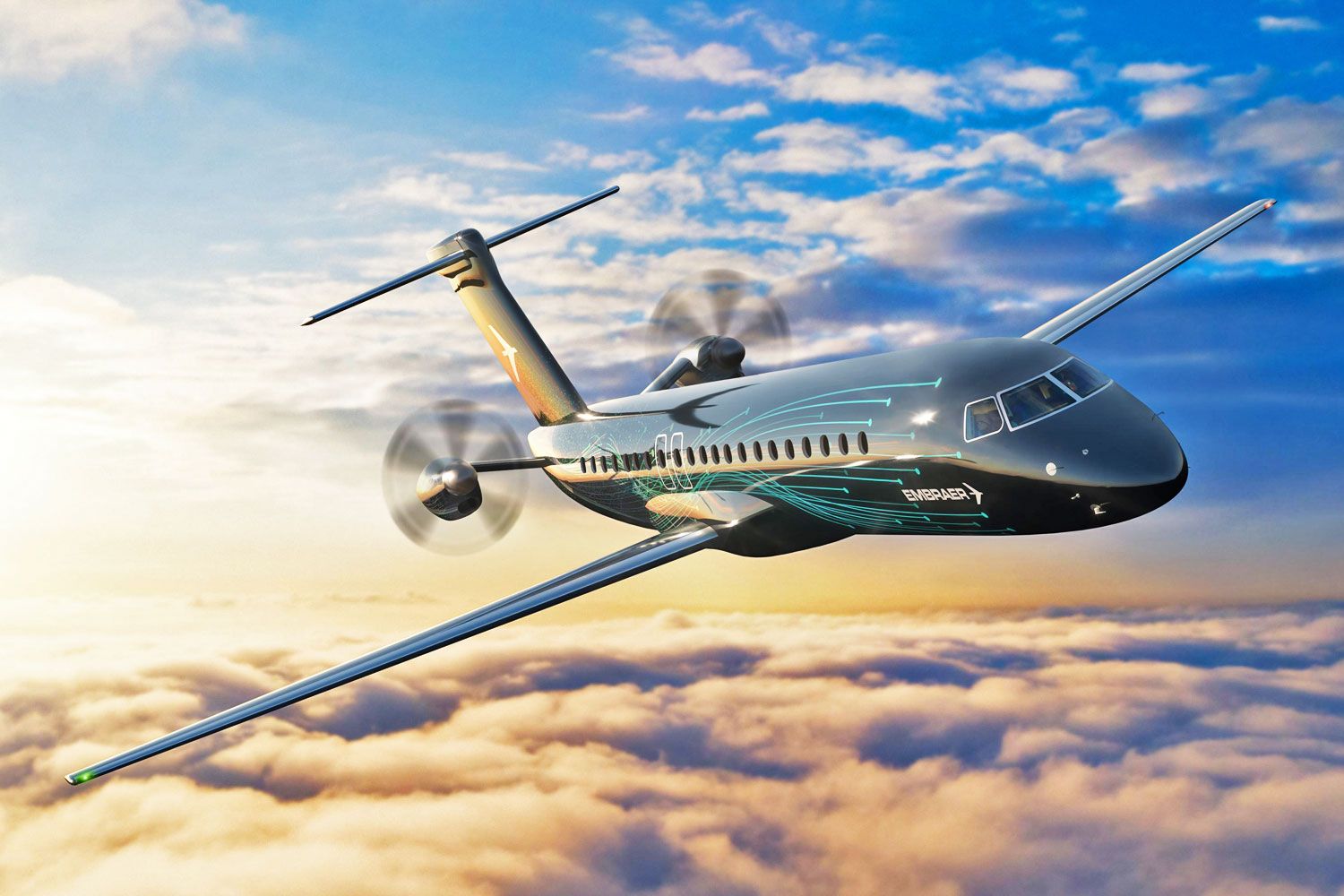Starting in 2024, aircraft manufacturer Embraer will be acquiring 100% of its electricity in Brazil from renewable sources. This is a year ahead of its initial commitment to be powered 100% in Brazil from renewables by 2025.
Using 100% renewable energy is one of Embraer's environmental, social and governance (ESG) goals that the OEM set in August 2021. Alongside its commitment in Brazil, it has set 2030 as the date for 100% renewable electricity for its global operations. In 2021 Embraer consumed around 170,000 megawatt-hours of electricity globally, with around 67% used in Brazil. With the acquisition of its Renewable Energy Certificate (REC) for 2024, Embraer will zero its Scope 2 carbon emissions in Brazil, purchasing all its electricity from solar and wind sources.
Since its formation in 1969, Embraer has delivered more than 8,000 aircraft, and, on average, an Embraer takes off every ten seconds somewhere in the world. It is the leading manufacturer of commercial jets up to 150 seats, with its aircraft carrying more than 145 million passengers per year. Today the backbone of its fleet is the E-Jet range, including the E175/195 and the E175/195 E2 aircraft, which are a familiar sight, particularly around regional and hub airports.
Reaching 100% renewable is a major milestone for Embraer
Embraer's vice-president of people, ESG and communications, Carlos Alberto Griner, said that moving to 100% renewables was a milestone and reinforces Embraer's commitment to environmental, social and governance practices as it transitions to a low-carbon business model.
"ESG is one of the pillars of our strategic plan and we have a broad program with several fronts, and we are looking at every opportunity to accelerate the reduction of our carbon emissions."
Embraer has also committed to carbon-neutral operations by 2040, the increased adoption of sustainable aviation fuel (SAF) and the development of low-carbon technologies. These technologies include electric, hybrid, SAF and hydrogen propulsion.
Speaking on May 30 at the 2022 Media Day, held at Embraer's São José dos Campos facility, the home of E-Jet production, Griner said that "following ESG goals is at the heart of Embraer's purpose."
"We have the most sustainable aircraft on the market and our biggest challenge is providing solutions for a net-zero emissions aviation by 2050."
Carbon neutral aviation by 2050 is the big picture
Embraer is focussing on three main areas to get to carbon neutrality by 2040. These are renewable energy, efficiency and reduction and increased use of SAF. On fuel, it is targeting 25% of total fuel use with neat SAF by 2040 and says it started regularly using SAFs in its US operations in 2021.
It is also looking at its new-generation turboprop program as another step towards a greener aviation world. While the project is in its early stages of development, Embraer believes it will be around a 15% greener solution for regional operators over what is currently available. On current projections, Embraer is forecasting the new turboprop will enter service in 2028.
The path
Embraer also released a roadmap towards net-zero that includes 100% SAF use by the E2 Jets and NG Turboprop well before 2030. It is developing its family of Energia solutions that will evolve in stages from hybrid-electric, electric, hydrogen fuel cells, hydrogen H2 gas turbines and the E2H2 aircraft by 2050.
If you have traveled on an Embraer E-Jet please tell us about your experience and your thoughts on Embraer's environmental goals.
Discover more aviation news here.



